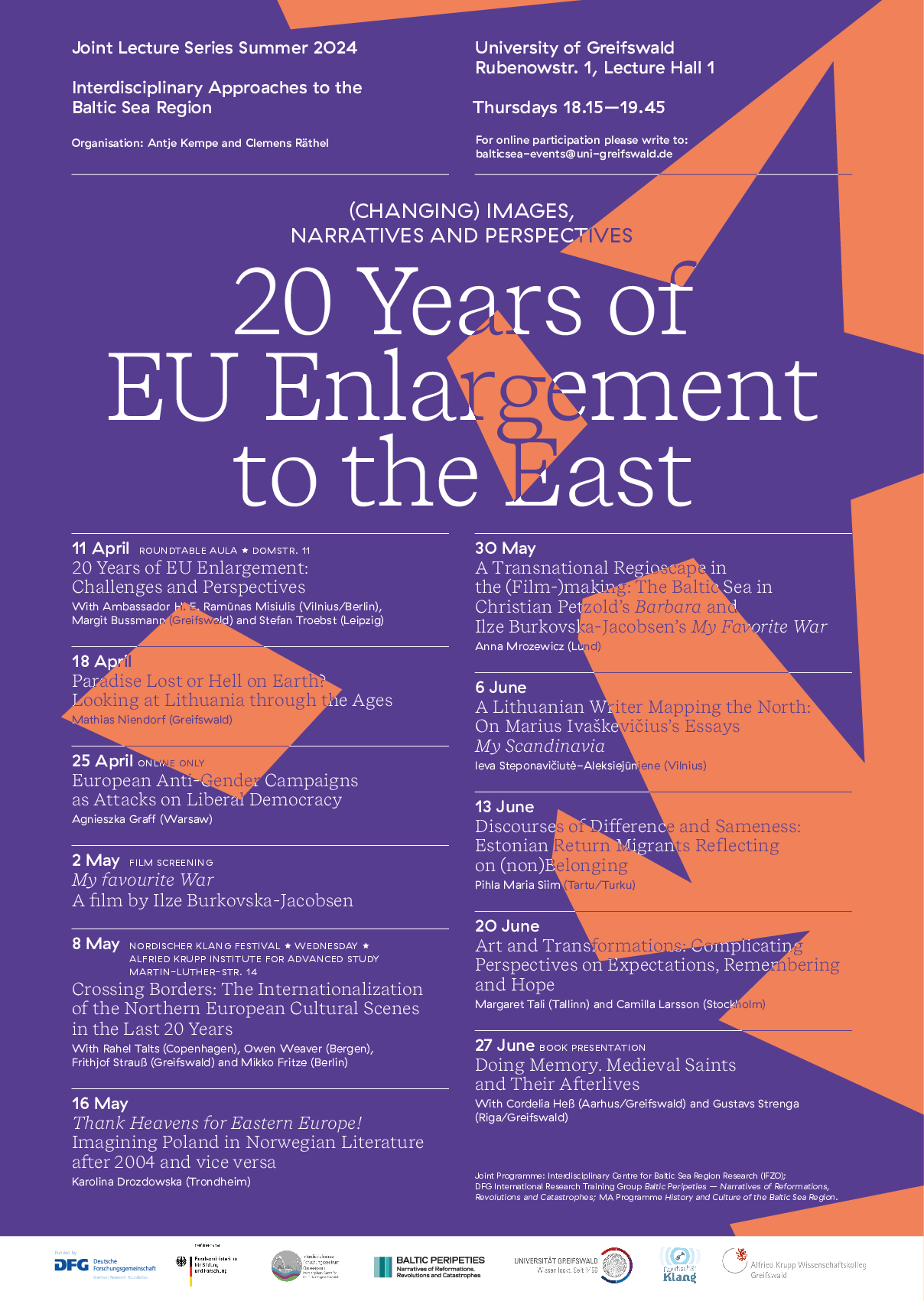Speaker: Anna Mrozewicz (Lund)
Chair: Clemens Räthel (Greifswald)
The Baltic Sea has long served as a natural divider between Scandinavian and Eastern European countries, a role particularly pronounced during the era when it formed part of the Iron Curtain. For Scandinavians, it symbolised a protective barrier, a metaphorical moat guarding against external threats. Conversely, from an East-Central European perspective, the Baltic Sea represented a beacon of hope, a potential route to freedom. This cultural perception of the sea is richly depicted in cinema, where it often takes on the guise of a ‘blue boundary’ or a ‘horizon of hope’. Yet, alongside these idealised depictions, there exists a darker narrative – that of ‘Baltic noir’. This conceptual framework, akin to the ‘Eastern noir’ trope (Mrozewicz 2018), portrays the sea as a foreboding frontier, cloaked in nocturnal mystery and subject to stringent state control.
In my talk, I will delve into the audiovisual representations of the Baltic Sea, viewing them as performative regioscaping practices. By adopting this lens, I aim to unearth insights into the collective memories and histories of human mobility across the Baltic Sea, transcending official narratives. Moreover, I seek to explore the intricate human relationship with the sea – both as a cultural boundary and as a tangible body of water. Through an analysis of select films, including Christian Petzold’s Barbara (2012, Germany) and Ilze Burkovska-Jacobsen’s My Favorite War (2020, Norway, Latvia), it becomes evident that the Baltic Sea remains a crucial spatiotemporal nexus in the transnational retelling of the region’s history and identity.
Thursdays, 18.15–19.45
Rubenowstr. 1, Lecture Hall 1
University of Greifswald
For online participation, please write to: balticsea-eventsuni-greifswaldde
Organisation: Antje Kempe & Clemens Räthel

